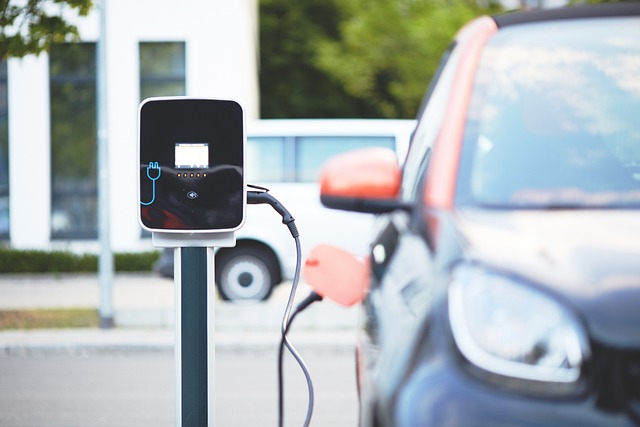Electric SUVs in India – Driving Change Through Innovation and Efficiency
India's automotive landscape is witnessing a remarkable transformation as electric SUVs emerge as a compelling alternative to conventional vehicles. With advancements in battery technology, expanding charging infrastructure, and supportive government policies, electric SUVs are no longer a distant dream but a practical reality for Indian consumers seeking sustainable mobility solutions without compromising on space, comfort, or performance.

The Indian automotive market has traditionally been dominated by fuel-efficient hatchbacks and sedans, but the winds of change are blowing strongly in favor of electric mobility. Electric SUVs represent a unique convergence of environmental consciousness, technological innovation, and the practical needs of modern Indian families. As urban air quality concerns intensify and fuel prices fluctuate, more consumers are exploring electric alternatives that offer both sustainability and the commanding road presence that SUVs provide.
The Growing Shift to Electric Mobility
The transition toward electric vehicles in India has gained significant momentum over the past few years. Government initiatives such as the FAME (Faster Adoption and Manufacturing of Electric Vehicles) scheme have provided substantial incentives for both manufacturers and buyers. State-level subsidies further sweeten the deal, making electric SUVs increasingly accessible to middle-class families. Major automotive manufacturers have recognized this shift and are investing heavily in electric platforms specifically designed for Indian road conditions and consumer preferences. The combination of lower running costs, reduced maintenance requirements, and environmental benefits has created a compelling value proposition that resonates with environmentally conscious buyers and cost-savvy consumers alike.
Technology and Performance Evolution
Modern electric SUVs available in India showcase impressive technological capabilities that challenge traditional perceptions about electric vehicles. Battery capacities have grown substantially, with many models offering real-world ranges exceeding 300 kilometers on a single charge, addressing the primary concern of range anxiety. Advanced battery management systems ensure optimal performance across varying temperatures and driving conditions typical of Indian climates. Performance-wise, electric SUVs deliver instant torque, providing brisk acceleration that often surpasses their internal combustion counterparts. Features such as regenerative braking, multiple driving modes, and connected car technologies have become standard offerings. Many models incorporate sophisticated infotainment systems, advanced driver assistance features, and over-the-air update capabilities that keep the vehicle current with the latest software improvements.
Infrastructure and Government Support
The success of electric SUVs hinges significantly on charging infrastructure availability, an area where India has made considerable progress. Public charging stations are proliferating in major cities and along key highways, with both government agencies and private players investing in fast-charging networks. Home charging solutions have become more standardized and affordable, allowing owners to conveniently charge their vehicles overnight. The government has introduced favorable policies including reduced GST rates on electric vehicles, road tax exemptions in several states, and registration fee waivers. These measures collectively reduce the total cost of ownership and accelerate adoption rates. Additionally, various state governments have announced ambitious targets for electric vehicle adoption, creating a policy environment conducive to long-term growth in this segment.
Economic and Environmental Impact
The economic advantages of electric SUVs extend beyond the purchase price. Electricity costs significantly less than petrol or diesel on a per-kilometer basis, resulting in substantial savings over the vehicle’s lifetime. Maintenance costs are considerably lower due to fewer moving parts, no engine oil changes, and reduced brake wear thanks to regenerative braking systems. From an environmental perspective, electric SUVs produce zero tailpipe emissions, contributing to improved urban air quality. Even when accounting for electricity generation sources, the overall carbon footprint remains lower than conventional vehicles. As India’s renewable energy capacity expands, the environmental benefits will only increase. The reduction in noise pollution also contributes to more pleasant urban environments, particularly beneficial in densely populated cities.
| Model Category | Estimated Price Range | Typical Range per Charge | Key Considerations |
|---|---|---|---|
| Compact Electric SUV | ₹12-18 lakhs | 250-350 km | Ideal for city commuting, lower upfront cost |
| Mid-Size Electric SUV | ₹18-30 lakhs | 350-450 km | Balanced space and range, family-friendly |
| Premium Electric SUV | ₹30-50 lakhs | 400-500+ km | Advanced features, longer range, luxury appeal |
| Luxury Electric SUV | ₹50 lakhs+ | 450-600+ km | Top-tier technology, premium materials, performance |
Prices, rates, or cost estimates mentioned in this article are based on the latest available information but may change over time. Independent research is advised before making financial decisions.
Consumer Considerations
Potential buyers evaluating electric SUVs should assess several factors before making a purchase decision. Charging infrastructure availability in their locality and along frequently traveled routes remains a primary consideration. Understanding one’s daily driving patterns helps determine whether available range meets practical needs. The availability of home charging facilities or access to workplace charging can significantly influence ownership experience. Buyers should also consider the warranty coverage for battery packs, which typically extends beyond the standard vehicle warranty. Resale value considerations are evolving as the market matures, with early indicators suggesting reasonable value retention for well-maintained vehicles from established manufacturers. Test driving multiple models helps identify which vehicle best suits individual preferences regarding ride comfort, handling characteristics, and feature sets.
The electric SUV segment in India stands at an exciting juncture where technology, policy support, and consumer readiness are aligning to create a viable alternative to conventional vehicles. While challenges remain, particularly regarding charging infrastructure in smaller cities and initial purchase costs, the trajectory is undeniably positive. As battery technology continues improving, costs decline, and infrastructure expands, electric SUVs are poised to become mainstream choices for Indian families seeking sustainable, economical, and technologically advanced transportation solutions that align with both practical needs and environmental values.




